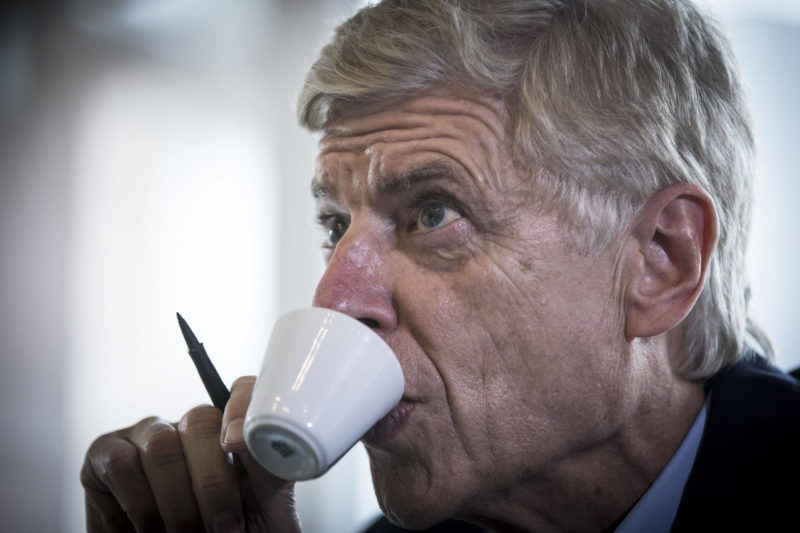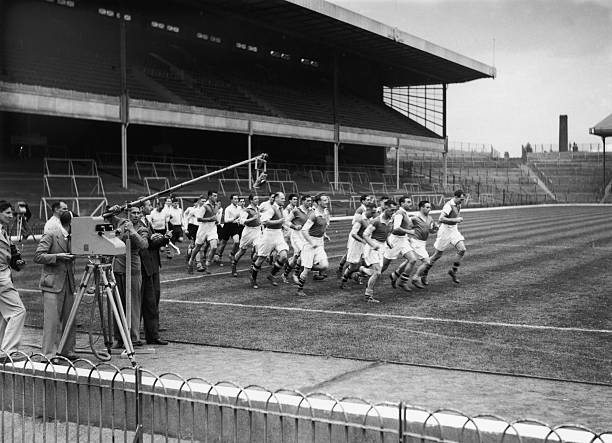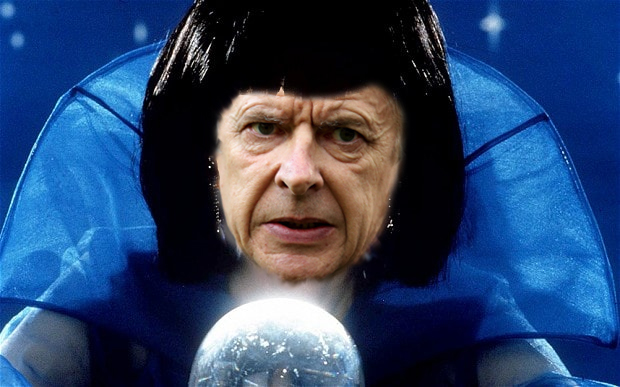Arsene Wenger said we would soon see a European Super League usurping weekend domestic football in his final Mystic Weg prediction before he called it a day as Arsenal manager.

Throughout his time at the club, Arsene Wenger was something of a prophet in terms of identifying trends in the global game.
Just before he left, he predicted that we would see an increase in players running down their contracts so they could leave on a free transfer and pocket a share of would have been their transfer fees themselves.
Of course, his biggest prediction was that his own team could go through a season undefeated.
Speaking at his final pre-match press conference ahead of the season’s final game at Huddersfield, Wenger said it was ‘inevitable’ that the bigger clubs will want to exclude smaller ones from the huge amounts of broadcast revenue they generate.
“In a few years, you will certainly have a European league over the weekends,” said Wenger in 2018.
“It is inevitable. Why? First of all, to share money between the big clubs and small clubs will become a problem.
“The big clubs will say: ‘if two smaller clubs are playing each other nobody wants to watch it. People want to watch quality. So we have to share the money but nobody is interested in you’.
“A domestic league will certainly play Tuesday, Wednesday. I think that is the next step we will see.
“It will be soon because it is a way for other clubs to fight against the Premier League,” he added.
“Look at the audiences of the Champions League. There’s a contrast there because if you look at the audiences of the Champions League it is not fantastic.
“But if you have Real Madrid v Barcelona, or Real Madrid v Arsenal, or Manchester United v Bayern Munich every week the audiences will be good.
“If you want to make it [the Premier League] more attractive you have to go down to 16 [teams],” Wenger said.
“And make a real competition of it. But it will be smaller if it goes to Europe.”
Arsenal, Manchester United, Manchester City, Chelsea, Liverpool and Tottenham spent part of that season trying to renegotiate the broadcast share of the Premier League’s overseas revenue in what many felt was the first step towards a super league.
Want to know how TV took over football? Read on…
How football took over TV
by Dan Critchlow

When Arsenal Football Club was founded as Dial Square in 1886, nobody could have dreamed that we would see fixtures moved for the benefit of TV companies beaming the game to millions, so how did we get from one to the other?
 Football was not televised for the first time until 51 years after Arsenal were founded, and it was the Gunners that first featured on the screens of fans. The first televised match was a friendly between Arsenal and Arsenal Reserves, shown on the BBC. While this was the start of the television revolution, only international matches and FA Cup finals were shown for some time after this match.
Football was not televised for the first time until 51 years after Arsenal were founded, and it was the Gunners that first featured on the screens of fans. The first televised match was a friendly between Arsenal and Arsenal Reserves, shown on the BBC. While this was the start of the television revolution, only international matches and FA Cup finals were shown for some time after this match.
After a brief, failed attempt by ITV to bring live football into regular programming in the 60s, it wasn’t until 1983/84 that league games finally started to be shown regularly.
From 1983 to 1988 the value of TV rights sky-rocketed from £5.2m to £44m, and First Division clubs saw an opportunity to get rich.
In 1992, teams voted to quit the First Division and set up the Premier League which would be broadcast on Sky Sports in a new deal worth £191.5m. TV money was starting to speak loudly.
For 15 years, Sky maintained a monopoly on football rights before this was finally called into question. In 2007, the contract was split into packages, with Setanta Sports, ESPN and BT Sport all having a go at challenging Sky’s dominance. This opened the door to the ridiculous money flooding the game today, as media companies looked to cash-in on the Premier League gravy train by throwing ever-increasing amounts to lock-in the rights.
Today, the Premier League is broadcast to more than 643 million homes worldwide, according to 2013 figures although recent reports suggest that these numbers are starting to decline. The availability of illegal, but free, online streams is just one reason why this might be the case.
In an attempt to get the best value for money from those millions of homes, Sky and BT now regularly move fixtures around to suit the armchair viewer, regardless of the impact on the match-going fan.
An example of how absurd this has got was the recent back-and-forth debate over whether Sky would be allowed to move Arsenal’s game against Liverpool to 4pm on Christmas Eve.
In the end, common sense prevailed, but Sky simply moved the game to the 22nd, Arsenal’s Boxing Day game to the 28th, the West Brom match to New Year’s Eve and the New Year’s Day game to the 3rd.
Stories abounded on social media of fans being inconvenienced by all of the four matches changing, as many had booked holiday plans or organised tickets as gifts, only to discover they would no longer be able to attend the games. Thankfully, Arsenal will generally refund fans if they bought tickets before a match was rescheduled, As for travel expenses and alternative Christmas gift ideas, you’re on your own.
Overall, I think it’s all a bit of a trade off.
TV money and coverage pushed football to the next level, and I don’t think you can ignore that.
The Premier League is the richest league in Europe by some distance, and that should show on the pitch in the quality of players who come to these shores.
What’s more, fans can join in supporting Arsenal from all over the world.
Here at Daily Cannon, we have people from a number of different countries working away, and that wouldn’t be the case if TV was only showing the FA Cup final.
However, as a season ticket holder of over a decade, I also know how inconvenient it is to plan and re-plan your life around decisions made by TV executives who don’t really care whether you turn up at all, as long as a few million more people tune in a home to watch.
But perhaps that’s just a sacrifice we had to make to watch the players TV money brings to our grounds…
